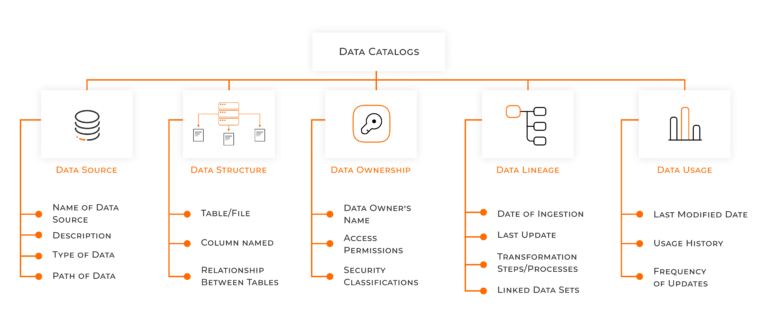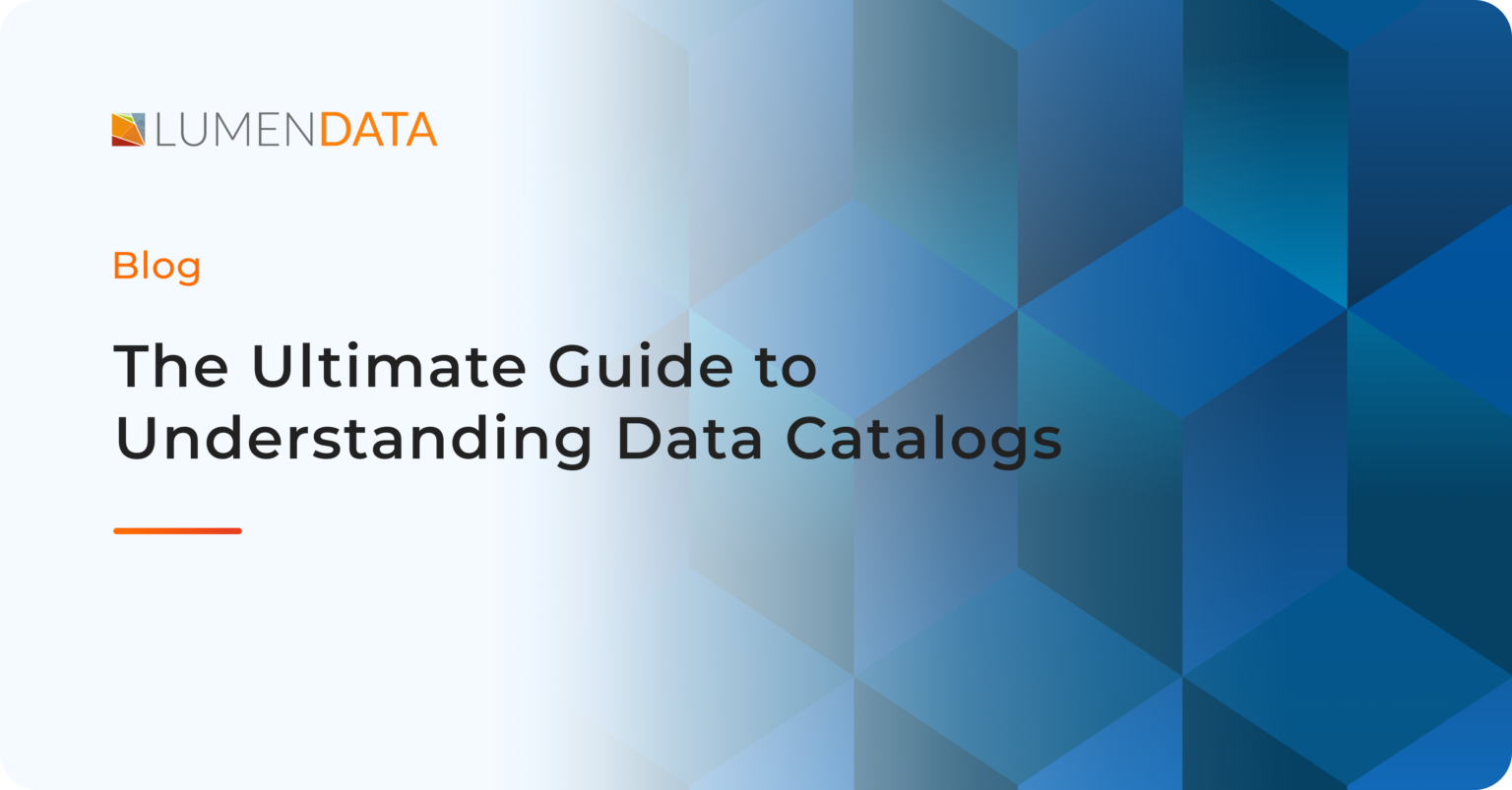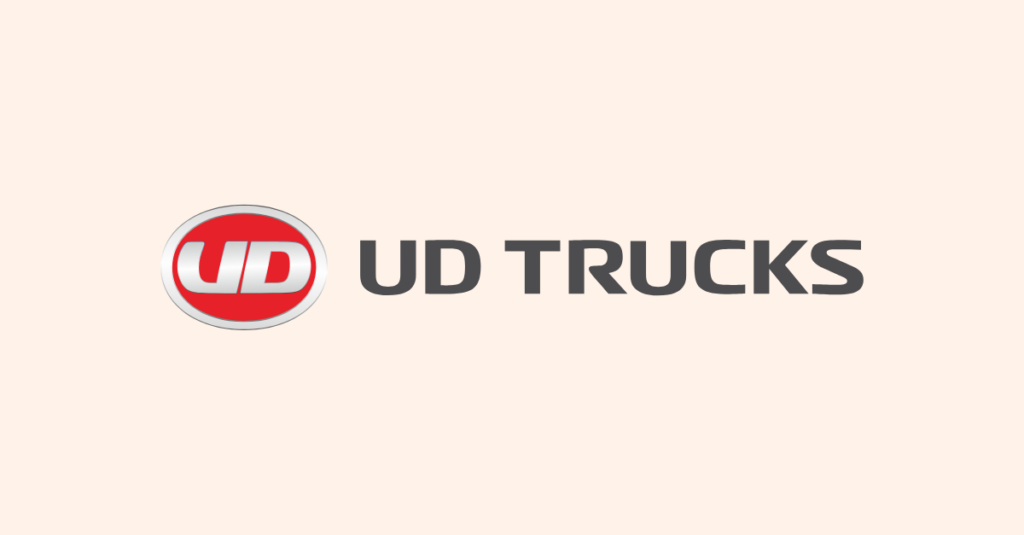Businesses of all sizes are dealing with vast amounts of data generated from various sources. The challenge is – how to manage and utilize this data to make informed decisions and gain a competitive edge. Enter the data catalog – a modern data management solution for new-age organizations.
This blog piece will some important concepts around data catalogs that businesses must know in 2023:
- Meaning of data catalog
- Its importance
- Data catalog use cases
What is a data catalog?
A data catalog is defined as a specialized tool/application that helps organizations identify, understand, assess, and organize their data assets.

Let’s try to understand the concept with the help of an example. Think of data catalog as a travel itinerary. The itinerary acts like a catalog as it provides detailed information about your travel plan such as sightseeing spots, local cuisine, transportation options, accommodation details, and more. It helps you quickly comprehend what options are available, discover new places, and make informed choices about what places to visit or what activities to opt for. In the same way, a data catalog helps businesses quickly discover valuable datasets, identify and understand available data assets, and make informed decisions about which data to leverage for different business purposes.

By providing insights into data quality, ownership, access controls, and data usage, data catalogs help streamline data management and governance. With the availability of detailed metadata, enterprises can easily identify responsible entities for each dataset, enabling accountability and adherence to data governance standards and guidelines.
Informatica’s enterprise data catalog enables organizations to get a clear view of their most relevant data. It supports data discovery via an intuitive interface and helps gain contextual insights from data lineage and profiling. Businesses can leverage AI-powered domain discovery, data similarity, and more.
Data Catalogs: What they are not
Many individuals mistake a data catalog for a data warehouse, data dictionary, and business glossary. All of them are concepts of data management but serve different objectives. Let’s take a look at them one by one:
Data warehouse – While both data warehouse and data catalog are repositories of information, they have different functionalities. A data warehouse consolidates and stores structured data from various sources for analysis and reporting, while the data catalog offers information about the data assets available in the data warehouse and other data sources.
Data dictionary – Data dictionary offers technical documentation about the data elements such as data type, format, and so on. A data catalog goes beyond the capabilities of a data dictionary. It captures information about data usage, data relationships, and data lineage.
Business glossary – A business glossary is a compilation of business terms and their definitions. It is a single source for commonly used business terms and ensures a consistent understanding of terminologies across an organization. A data catalog focuses specifically on data assets, attributes, and their meanings. It connects business terms to corresponding data elements.
Data catalog use cases
Data search and discovery
Enable self-service data exploration. Seamlessly search and discover relevant datasets, tables, files, reports, and more using keywords, filters, and tags. Get a clear understanding of available data assets and their metadata. Informatica’s AI-powered catalog offers ML-based discovery engine to scan data across your organization.
Data filtering
Apply advanced filters such as data type, data owner, data location, data range, and others to refine your search results. Also, filter results based on metadata attributes such as data source, data quality, and more. Get automated data classifications with intelligent domain and entity recognition capabilities from Informatica.
Data sharing
Annotate, review, comment, and rate data sets and foster enhanced collaboration within your organization. Teams across different enterprise departments can access the same datasets, apply their analyses, and share data observations.
Data lineage
Get a visual representation of your data’s flow from its source to destination and enhance your understanding of data transformation. Comprehend easily how your dataset is aggregated or cleansed as it moves through different stages. Informatica’s Intelligent Data Catalog enables you to track data movement from system views to column-level lineage.
Self-service analytics
Independently locate and leverage datasets without relying on IT teams and accelerate insights generation. Take ownership of your data requirements and make more informed business decisions. Informatica’s data catalog provides prepackaged data reports and dashboards and an automated data value calculator that enables you to measure and optimize the value of your datasets.
Wrapping up
With the capability to elevate data understanding, streamline information sharing, and enforce data governance processes, data catalogs are an indispensable asset for modern businesses seeking to accelerate innovation.
Embrace a transformative approach to managing your data with modern data catalog solutions like Informatica’s Intelligent Enterprise Data Catalog. Here at LumenData, we take pride in our esteemed partnership with Informatica. We stand at the forefront of cutting-edge data strategies and technology implementation that empowers businesses like yours to harness the true potential of your data.
Connect to discuss how we can drive optimized business transformation for your organization.
Authors:

Shalu Santvana
Content Crafter

Ankit Kumar
Technical Lead

Shalu Santvana
Content Crafter

Ankit Kumar
Technical Lead





